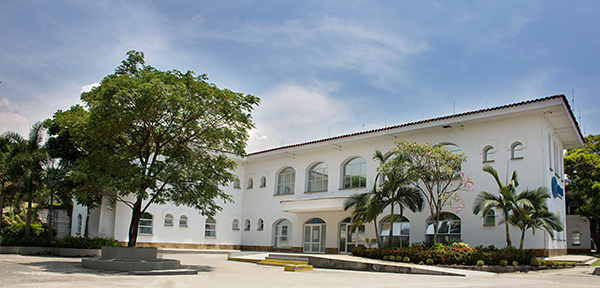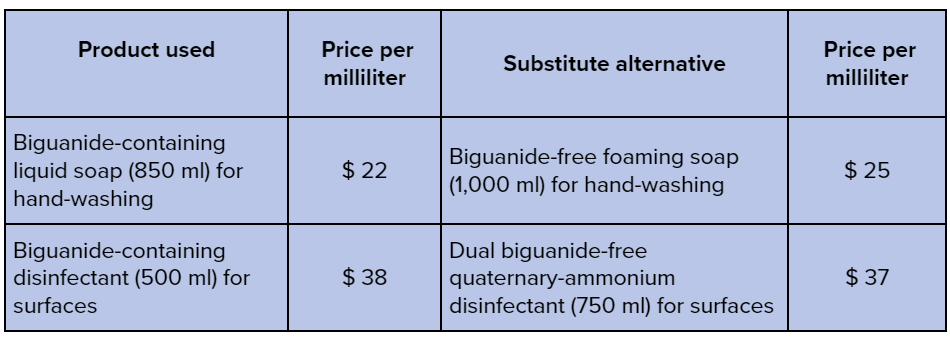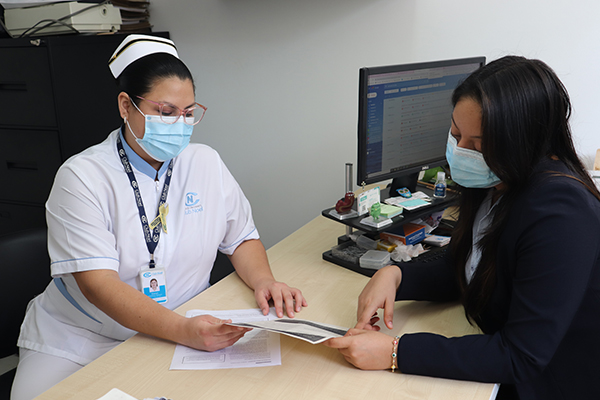Sustainable Health in Procurement Project (SHiPP) case study: Club Noel Children's Clinical Foundation, Colombia
Location: Cali, Valle del Cauca.
This case study was first published in the Hospitales que curan el planeta report, produced by Health Care Without Harm Latin America.

In 2020, due to the need to reinforce cleaning and disinfection actions to minimize SARS-CoV-2 transmission, with the help of the Infections Committee, the COVID Interdisciplinary Group, and the Supplies Management and Environmental Management areas, Club Noel Children's Clinical Foundation started a thorough exploration of the active components of the supplies needed to clean and disinfect the hospital, complying with all protocols of the Colombian National Health Institute.
After a methodical review of the products safety data sheets, the institution found that personnel had not a clear understanding of the disinfection procedure for medical furnishing surfaces, such as stretchers, beds and cribs, among others.
In 2021, when the leaders of the assessment process came to know Health Care Without Harm new guides1, they found the perfect opportunity to start the second phase of this project. Thus, based on the guides’ recommendations, they prioritized the elimination of products that were harmful for human health and the environment.
According to the «Safer Disinfection of Surfaces» Sustainable Procurement Quick Guide, polyhexamethylene biguanide hydrochloride (PHMB) was a substance that had to be eliminated for being «of high concern due to proven mutagenic, carcinogenic, repro-toxic, chronically toxic, or highly environmentally toxic properties», and because «such substances may harm humans or aquatic organisms even in low concentrations», which means that «hazards are difficult to control and/or irreversible.»
Club Noel Children's Clinical Foundation identified two alarming situations: the product being used to clean medical furnishing contained this substance, and the antiseptic soap being used in all medical services (both semi-critical and non-critical) contained chlorhexidine gluconate and triclosan, two other substances identified in the «Hand-Washing Routine» Sustainable Procurement Quick Guide as having the same properties above mentioned.
Thanks to the work done with these two guides, to the assessments conducted on the use and performance of safer alternatives, and to the microbiological testing for pseudomonas aeruginosa, candida auris, and staphylococcus aureus, among others, the institution secured the endorsement of the Procurement Committee, the Patient’s Safety Committee and the Infections Prevention Committee to substitute and buy during 2021 the following supplies, which were successfully tested for final implementation:
- Foaming soap free from triclosan and chlorhexidine for hand-washing in Hospitalization, Nutrition and all other semi-critical and non-critical areas, except for critical areas: Surgery, ICU, and Oncology.
- Dual-use fifth-generation quaternary ammonium (cleaning and disinfection) for medical furnishing; readily biodegradable.
Also, the institution gave priority to the following actions:
- Cost-benefit assessment to compare the content of chlorhexidine gluconate (800 ml) with that of foaming soap (1000 ml), whose result favored the alternative substitute in terms of dilution and performance.
- Staff acceptance tests and other product alternatives from different suppliers.
- Benchmarking with other GGHH member institutions in the same city.
This pilot project, that was born in 2021, paved the way for the substitute-products green-procurement process started in 2022, which was approved thanks to the commitment and leadership shown by the Infections Prevention Committee and the Environmental Management and Supplies Management areas.

Cost-benefit table for the substitution of cleaning and disinfection products
In the case of the biguanide-free foaming soap for hand-washing, although the price per milliliter is $3 higher than the previous product, this alternative is more efficient (2,500 uses due to its foaming format).
 The Foundation team reviewing the safety date sheets
The Foundation team reviewing the safety date sheets
1. Three guides on disinfection of surfaces, surgical instruments and hand-washing routine, published in 2021 for the use of Global Green and Healthy Hospitals’ members.
